#20
COCA-COLA
Coca-Cola is a total beverage company, committed to offering individuals an expanded selection of their preferred beverages across a range of categories and in a variety of sizes. The Coca-Cola Company’s purpose is to refresh the world and make a difference, and the company’s growth strategy is grounded in its core values and commitment to impactful Environment, Social and Governance (ESG) practices.
Coca-Cola has a robust presence in East Africa, establishing operations in the 1920s with bottling plants in Kenya, Ethiopia, and Tanzania. Over the years, it has emerged as a key player in the East African beverage market, holding a significant market share. The East and Central Africa Franchise, encompassing fifteen markets, features nineteen bottling partners. Coca-Cola Beverages Africa (CCBA), operating in fifteen markets with nine independent bottlers, collaboratively serves a community of nearly 300 million people in the region.
Coca-Cola is steadfast in its commitment to a ‘World Without Waste’, a sustainable packaging initiative launched in 2018. The company’s dedication to the environment is reflected in its goals, focusing on designing improved packaging, collecting and recycling post-consumer packaging, and incorporating recycled materials into its packaging. As part of this initiative, Coca-Cola has been a voluntary member of PETCO (now PAKPRO) since 2018, emphasising producer responsibility for collecting polyethylene terephthalate (PET) bottles. In Kenya, Coca-Cola is transitioning from voluntary extended producer responsibility (EPR) to mandatory EPR, showcasing its pioneering role in taking responsibility for post-consumer packaging.
Furthermore, Coca-Cola takes initiative in bolstering the post-consumer packaging collection and recycling value chain. Establishing over 80 segregation points nationwide in diverse locations, the company promotes the separation of different waste streams, contributing to increased material collection for recycling. Recognising the vital role played by the informal sector in the waste collection value chain, Coca-Cola implements programs to support them, encompassing training, business skills assistance, and providing collection equipment and personal protective equipment (PPE).
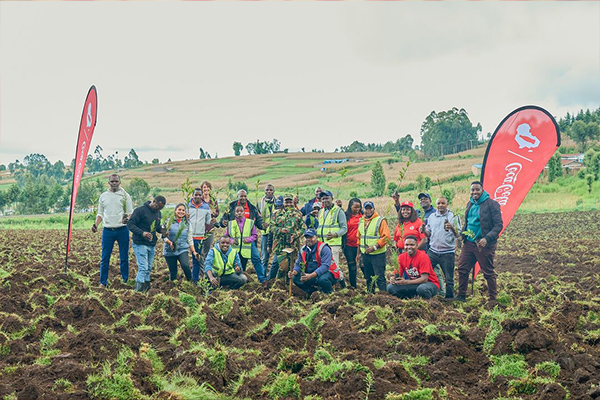
Coca-Cola is inherently devoted to water stewardship, exemplified in its Water Strategy Guide, stating, “The Coca-Cola System is a global leader in water stewardship with a legacy of ambition, innovation, and partnerships to globally ‘Reduce, Recycle, and Replenish’ the water we use.” In the past decade, alongside Coca-Cola’s bottling partners, the company has set a leading example in shared water management. Actively collaborating with Nature Kenya, Coca-Cola has reforested 90 hectares (ha) in Nairobi’s critical water catchment areas, planting 90,000 trees with a survival rate exceeding 80 percent. The Coca-Cola Foundation (TCCF) supports the Nairobi Upper Tana Water Trust Fund Project with a KES 160 million grant, enhancing water and soil conservation for nearly 600,000 people. Coastal Bottlers’ (CBL’s) zero-discharge plant in Kilifi North underscores Coca-Cola’s commitment to environmentally responsible practices, positively impacting the local aquifer and aiding local emergency response by refilling the Mtwapa firefighting truck.
In addressing climate change, Coca-Cola emphasises a threefold strategy: diminishing its business’ impact on the climate, managing risks associated with climate change, and collaborating with partners for a greater contribution. The company is dedicated to reducing its carbon footprint by enhancing the scale and efficiency of refrigeration equipment, utilising less carbon-intensive packaging, and transitioning ingredients used. Coca-Cola is committed to mitigation initiatives and building climate resilience, aligning with its broader commitment to reduce environmental impact across its business, communities, and value chain.
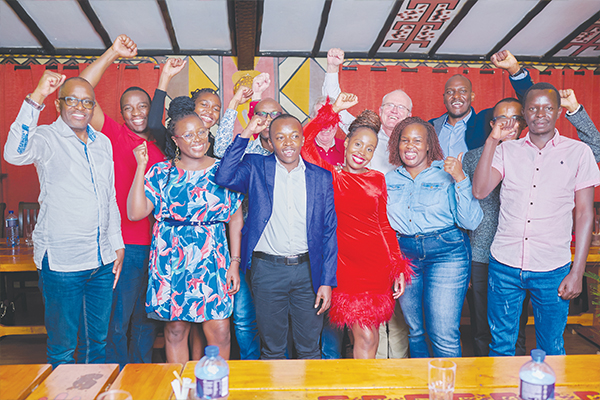
Further, CCBA Kenya collaborates with PET recyclers, leveraging technology and innovation to enhance recyclability, evident in product design changes like the clear Sprite bottle and Dasani’s neck sleeve. Ongoing research and development aim to further improve packaging design across all products. What’s more, CBL actively reduces its carbon footprint through innovative initiatives, notably the 2020 solar panel project powering a PET line. This strategic installation, covering the entire factory, serves as a sustainable energy alternative, avoiding 487.29 tonnes of CO2 emissions. Symbolically, it equates to planting 687 trees, showcasing CBL’s commitment to technological and environmentally progressive practices.
Coca-Cola exhibits a robust commitment to social responsibility, exemplifying its dedication to economic inclusion and diversity. Recognising the pivotal role of women and youth in the continent’s shared success, the company empowers them through targeted training and community programs, fostering entrepreneurship with potential links to the Coca-Cola value chain. The global success of the Coca-Cola 5by20® program, which aimed to economically enable five million women by 2020 but surpassed this goal, attests to the impact of such initiatives.
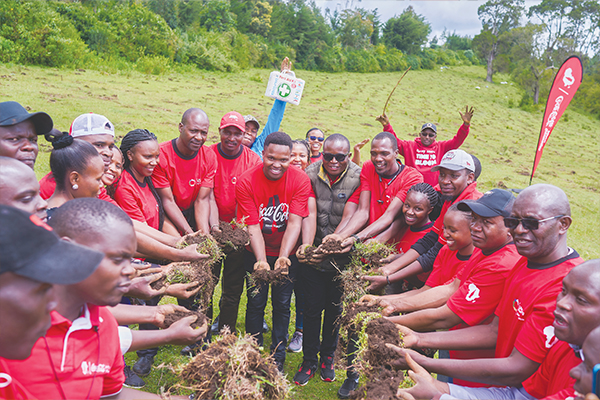
Notably, the Nawiri na Coca-Cola program supports the growth of five thousand street vendors, providing incentives, business skills training, and a tailored curriculum in collaboration with Centonomy. Similarly, the Sightsavers’ Global Labour Program, involving CCBA in Kenya, aims to embed over 600 women with disabilities in the retail chain by 2026. Through comprehensive business training, financial support, and equipment provisions, the project empowers women with disabilities to start or expand their businesses.
CBL collaborates with local universities and Technical and Vocational Education and Training (TVET) institutions to address the skills gap and promote diversity. This transformative initiative fosters the professional growth of graduates, positively impacting both the organisation and the broader community. Partnering with Emerging Leaders, CCBA in Kenya supports youth, women, and people with disabilities (PwDs) in entrepreneurship, emphasising mentorship and training.
The commitment to diversity and inclusion extends to the workplace, with CCBA emphasising economic inclusion as a pillar aligned with the United Nations’ Sustainable Development Goals (UN SDGs). CCBA Kenya’s manufacturing plants provide employment opportunities for hearing-impaired individuals, enabling their independence and contribution to their families. The Graduate in Training program nurtures emerging leaders, instilling values like customer-driven focus, ownership mentality, collaboration for excellence, and risk anticipation.
In pursuit of a workplace with zero injuries or fatalities, both CCBA and CBL prioritise employee wellbeing and safety. CCBA’s comprehensive HIV/AIDS management program ensures staff access to treatment, counselling, and care at Aga Khan hospitals. At CBL, preventative care programs include health assessments and screenings for lifestyle diseases, complemented by interactive sessions with experienced doctors. These initiatives not only benefit employees but also contribute to healthier families.
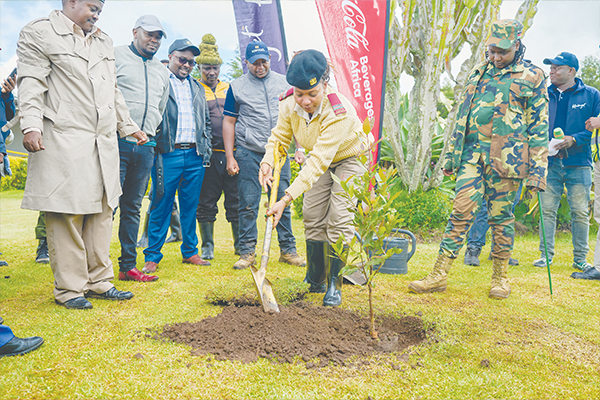
Complementing these efforts, the Employee Assistance Program provides a toll-free 24/7 psycho-social support service for staff and their dependents through a confidential tele-counselling service staffed by qualified professional counsellors.
Coca-Cola, embodying a robust commitment to good corporate governance, asserts, “Woven into the DNA of our organisation is a strong sense of purpose, to refresh the world and make a difference, with unwavering intent to do the right thing.” Upholding ethics and fostering a positive impact on communities and stakeholders stands at the core of the business. The company’s engagement with stakeholders, spanning customers, employees, partners, suppliers, regulators, and policymakers, establishes a global standard founded on respect, responsibility, and a universally applicable code of conduct.
In illustrating this commitment, Coca-Cola’s marketing strategies and policies prioritise relevancy, respect, and the rights of the individual, placing these principles at the centre of their approach. This approach permeates from product development to communication methods, exemplifying the company’s dedication to putting the audience first as a fundamental aspect of its media strategy.
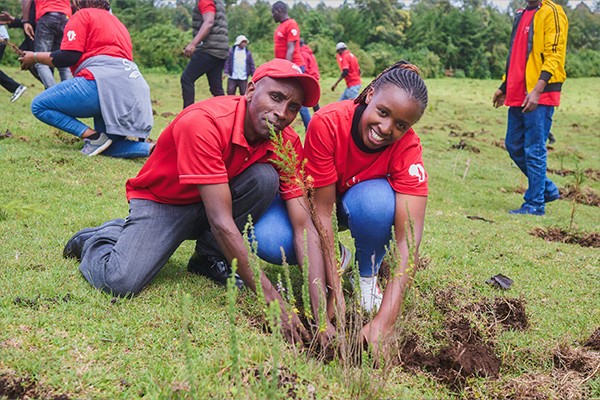
Coca-Cola’s vision is to craft the brands and choice of drinks that people love, and to refresh them in body and spirit in ways that create a more sustainable business and better-shared future. This vision seeks to make a difference in people’s lives, communities, and the planet.
















